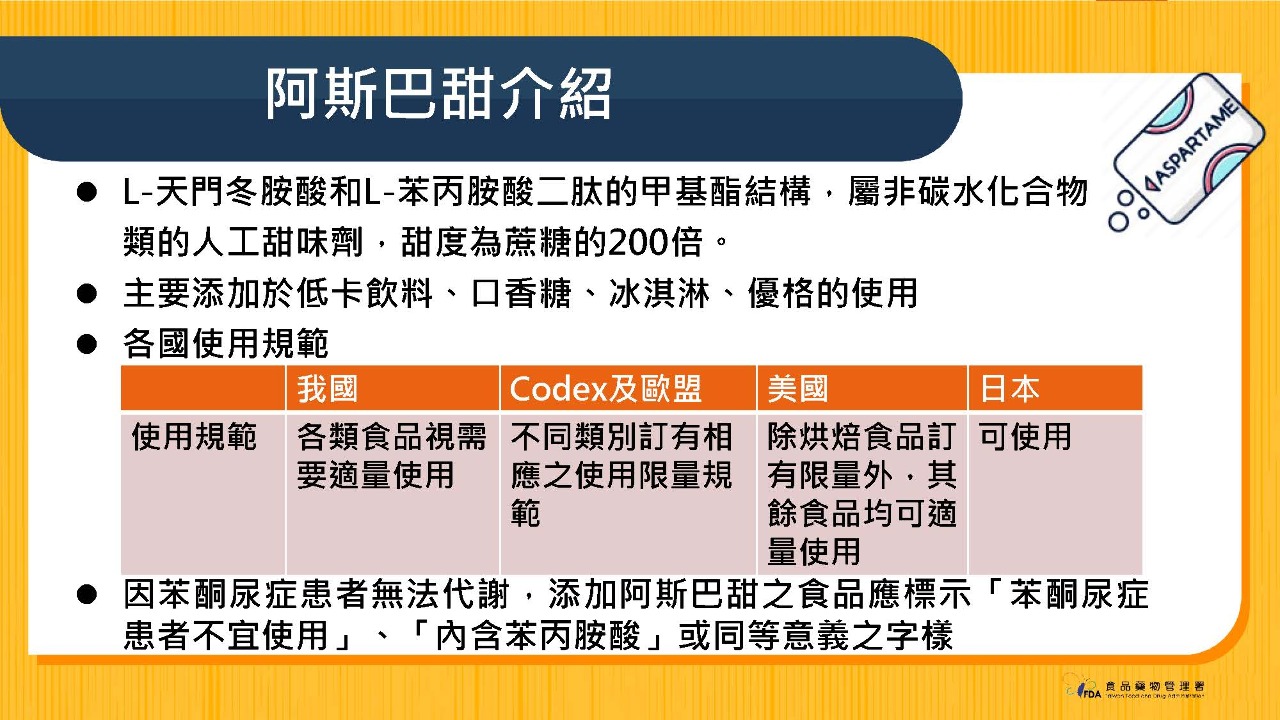The artificial sweetener Aspartame was labeled as Class 2B "possibly carcinogenic to humans" by the World Health Organization (WHO) on July 14 of this year, however the daily intake restriction of 40 mg per kilogram of body weight is still in place. The Food and Drug Administration (FDA) said that at this time, there will be no more regulation of aspartame usage.
Rad more: Taipei City Government to offer 10,000 free tickets for tour bus riding

WHO has classified aspartame, an artificial sweetener, as "possibly carcinogenic to humans."Photo provided by FDA
The results do not suggest that occasionally consuming foods containing aspartame poses a risk, according to Francesco Branca, Director of the Department of Nutrition and Food Safety at the World Health Organization. As a result, Branca does not advise that companies pull products from the market or that consumers avoid consuming products containing aspartame altogether. Instead, he advises that people consume these foods in moderation.
A common artificial sweetener used in ice cream, chewing gum, and drinks is aspartame. According to the FDA, aspartame is currently permitted for use under the Act Governing Food Safety and Sanitation, and numerous international studies have demonstrated that more proof is required to support aspartame's carcinogenicity, in contrast to the World Health Organization's Class 2B "possibly carcinogenic to humans" classification. As a result, we will keep an eye on pertinent publications as well as global trends in aspartame safety evaluation and management.







